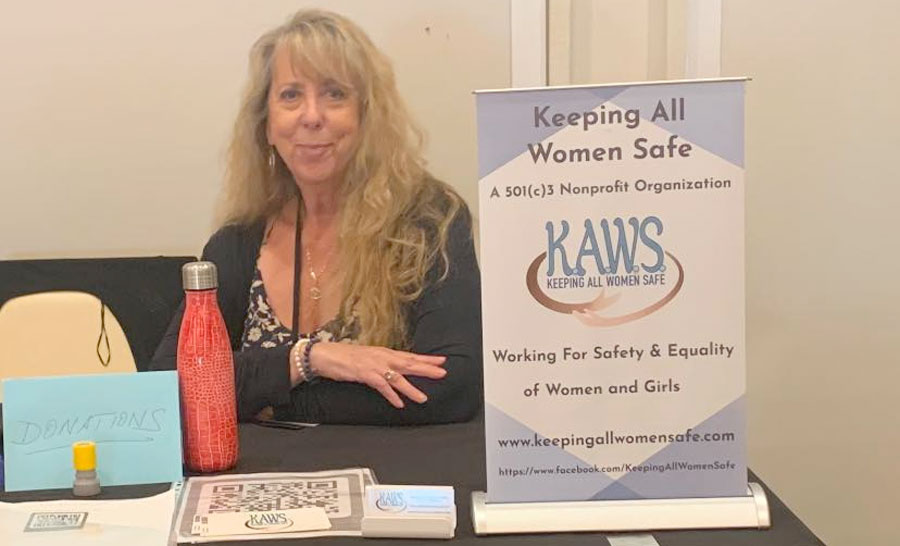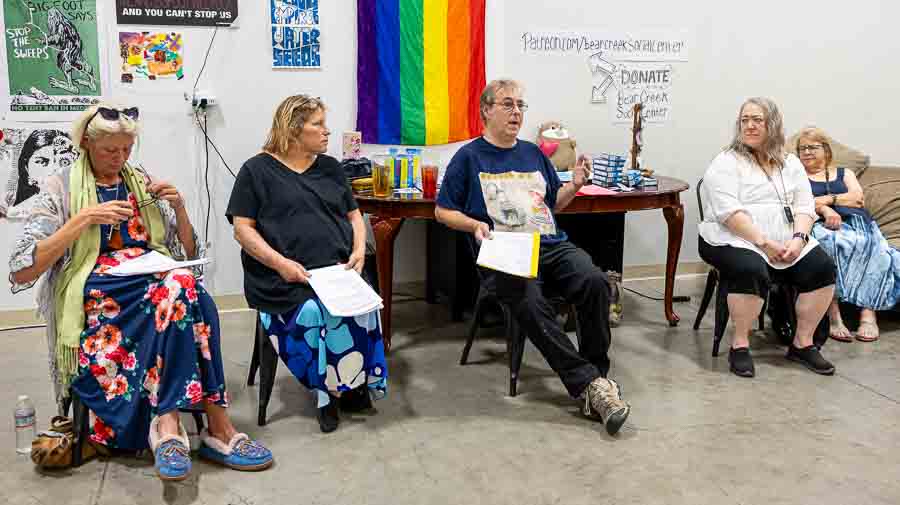Just say the word ‘cult’ and we’re all aquiver
By Herbert Rothschild
For most of its life, the word “cult,” like its cognate “culture,” had broad application and neutral connotation. Now, in this country it’s mainly applied to religious groups that are suspicious at best, evil at worst.

That was the way it was used last week in a lengthy Ashland.news article on TwinRay, a New Agey spiritual organization which just closed its store on Main Street. Much of the piece was given over to the complaints of a single disaffected former adherent with the pseudonym Sarai. It opened with her saying, “The devil doesn’t always show up with red, pointy horns, it shows up as everything you’ve ever wanted.”
I asked a large-language-model AI tool named Claude to give me a definition of the word “cult.” Here is the result: “A social group characterized by devotion to a charismatic leader or ideology, unconventional beliefs and practices, social isolation from mainstream society, high levels of control over members’ lives, pressure to recruit new members.”
Those characteristics fit fairly closely the Church of Jesus Christ of the Latter-day Saints. The one that least fits the LDS now is social isolation (with the exception of some polygamous groups), but the Mormons do make a distinction between those who are in and those who aren’t.
One of my sons is a Mormon. He is a fine man, honorable and productive in his work life, loving with his family, gentle and considerate of everyone. He found structure and meaning for his life when he converted in his early 20s. I have difficulty understanding why people believe many of the LDS doctrines (the more heterodox of which are not openly discussed), and I don’t like the conservative politics that seem endemic to Mormons. But then, neither do I share the beliefs and politics of any number of people outside the Mormon church. I would be upset if Ashland.news ran a piece on the Mormon church akin to its piece on TwinRay.
Of course, it wouldn’t do that; there would be serious pushback. But when the Mormon church was in its infancy, it too was widely regarded with suspicion. That suspicion led to physical attack and the murder of Joseph Smith, its charismatic leader. The Christian communities in the early days of the church were similarly suspect. Roman society viewed Christianity as a dangerous cult and felt justified in persecuting and killing its members.
Might it be that cults cease to be regarded as cults when they become mainstream? When their unconventional beliefs and practices gain enough adherents to become conventional? When their founders have been dead long enough for their followers to forget their human frailties and dress them in mythic garments? When the money they extract from their members are called tithes and offerings rather than fees?
Yes, there are dangerous cults, and they warrant public scrutiny. In our lifetime, those led by Jim Jones and David Koresh became notorious and lent justification to our readiness to condemn cults. Sarai compared the male leader of TwinRay to Koresh, and the story underscored that comparison in a subhead that ran, “Sanandaji compared to cult leader David Koresh.”
Was that comparison justified? Like Jones when he moved his flock to Guyana, Koresh kept his Branch Davidians in his compound near Waco. There was ample evidence that he sexually abused some of the females, including underage females. And he was stocking large numbers of guns in anticipation of a violent apocalypse, which came during an ill-advised, poorly conducted FBI raid on the compound. These were the actions that provoked condemnation of his cult. Call me obtuse, but I fail to see any resemblance between what Koresh did and the alleged behavior of Sanandaji.
Obviously, Sarai felt abused. After some four years, she felt that she had wasted the $80,000 she spent seeking personal bliss and a part in ushering in a golden age for humankind. Her disappointment is hardly unique. I’ve met people who’ve been disappointed by the Mormon church and by more mainstream religious organizations. I’ve heard people speak with greater bitterness about their experiences with the Roman Catholic Church and with fundamentalist Protestant churches.
The more general truth is that people are disappointed by many kinds of promises — spiritual, political, material, marital. Many of us have spent much more than four years and $80,000 seeking a fulfillment that proved elusive if not illusory. That doesn’t necessarily mean we were swindled. Others have found satisfaction in those very same places. A great deal depends upon us and our expectations. The grander those are, the more likely they won’t be met.
What I’ve written isn’t a defense of TwinRay. I know little and care nothing about it. But I know a lot about community suspicions being amplified until they become overt hostility, about humankind’s tendency to demonize the unfamiliar. Perhaps TwinRay’s primary mistake was to rent a store on Main Street.
Herbert Rothschild’s columns appear on Friday in Ashland.news. Email Rothschild at [email protected].



















